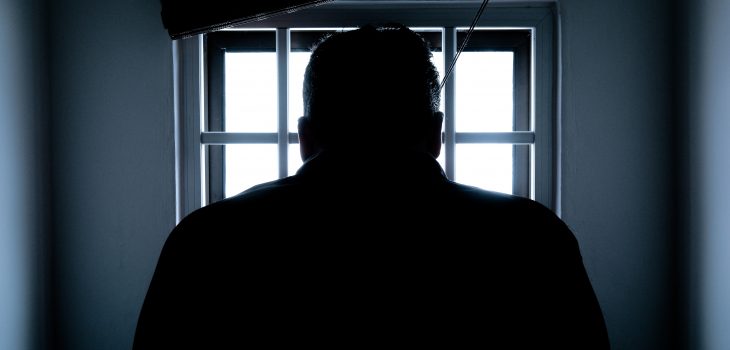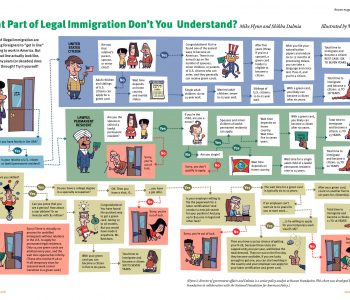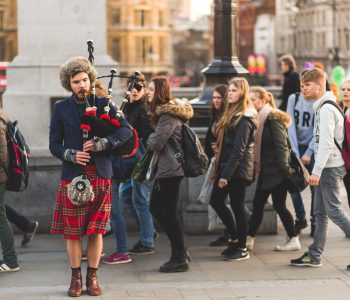
Watch for CPC lies about internment camps in China
A genuine crime against humanity is occurring in western China, at the hands of the Communist Party of China. Short of launching World War III to liberate the million-plus innocent Uighurs held prisoner there,[1] people around the world are wondering what to do to help. I’m one of them.
I heard a great phrase in a related discussion (we were talking about other problems posed by the CPC[2]) that others may find useful when considering that question. Rusty Guinn advised that there are a range of responses to atrocities, and that we don’t have to jump from “thoughts-and-prayers” straight to “Ticonderogas-and-Tomahawks.”
Even a President can’t expect to look at a menu of responses, pick the right one, and watch an atrocity resolve itself. Life isn’t so simple. While it would be nice to have a menu to turn to when needed, most of us aren’t in a position to use such a thing. But we can watch the CPC’s explanations for their evil with clear eyes. To help with that, I want to highlight a lie that came to my attention that everyone should be aware of, and that everyone can and should ridicule when they see it.
Look at the two enormous events involving China — the mass imprisonment of the Uighurs and the ongoing mass protests in Hong Kong — that are capturing our attention, and the narrative that the CPC is trying to craft about them. That’s where we’ll see the lie; the CPC uses rhetoric appealing to the Rule of Law to justify its conduct, but that conduct doesn’t resemble what the rest of us have in mind when we think about the Rule of Law.
I’ve written before about that idea:
What does rule of law mean? Various principles are often associated with it. Some of the big ones that come to mind are government of rules, not rule by men; no individual is exempt from the rules; the rules apply going forward, not to past conduct; and non-arbitrary enforcement of the rules. Particularly when it comes to aspects such as non-arbitrary enforcement, rule of law is pretty clearly an aspirational ideal that can be achieved to greater or lesser degrees, rather than a binary status (present or not).
From Corporate welfare violates the rule of law
What does the CPC say about the atrocities it’s committing against the Uighurs? Once they acknowledged that something was even happening in the region (no small feat), their thin justifications appeal to various aspects of Rule of Law, such as non-arbitrary enforcement:
Hu Lianhe, a senior official with the Communist Party’s United Front Work Department, who defended the program before a U.N. panel last month. He denied arbitrary detentions were taking place and said the centers are being used as vocational training centers for petty criminal offenders.
From American Lawmakers Push to Sanction Chinese Officials Over Xinjiang Camps
Or countering violence:
Chinese officials, including Mr. Chen’s Uighur deputy, have defended their Xinjiang policies as benign efforts to eradicate extremist and separatist violence, and to ensure ethnic harmony.
From China’s Hard Edge: The Leader of Beijing’s Muslim Crackdown Gains Influence
And not just violence, but violence aimed at destroying the political order:
China’s government insists the detention sites are “vocational” centers aimed at training and skills development. In a report earlier this year to counter criticism of internment camps and other oppressive security in the traditionally Islamic region, China said it had arrested nearly 13,000 people it described as “terrorists” and had broken up hundreds of “terrorist gangs” in Xinjiang since 2014.
From China and West clash over claims Beijing oppresses Uighurs
I’m sure there are plenty of similar statements from CPC officials involving Hong Kong. (Send me more examples about the Xinjiang and Hong Kong situations and I’ll probably add them here.)
Many newspapers reporting on the CPC’s tyranny in Xinjiang state that CPS officials either couldn’t be reached, or refused to comment. In the unlikely event that anyone actually has an opportunity to interview these monsters, it would be great to see them be grilled about what they think the Rule of Law means, and to what extent they think the internment camps in western China are consistent with it.
[1] Among the many reports of atrocities in Xinjiang, a few that have caught my attention are:
Muslim women ‘sterilised’ in China detention camps, say former detainees, in The Independent, August 12, 2019;
China’s Mass Internment Camps Have No Clear End in Sight, in Foreign Policy, August 22, 2018 (“In at least three counties, police have reported that they interned all or nearly all Uighurs born between 1980 and 2000, calling them an “untrustworthy generation”);
Brainwashing, Police Guards and Coercive Internment: Evidence from Chinese Government Documents about the Nature and Extent of Xinjiang’s “Vocational Training Internment Camps”, in Journal of Political Risk, July 2019 (“Decisive international action in response to the atrocities that are being perpetrated in Xinjiang is certainly not hampered by a lack of evidence on the true nature of this extrajudicial and inhumane internment campaign”);
They Come For Us At Night: China’s Vanishing Muslims, on Vice News, June 29, 2019 (undercover reporter Isobel Yeung captures footage from Xinjiang and interviews Uighur expatriates); and
My Uyghur family is quietly living in fear. This is how we become lost., in The Globe and Mail, July 27, 2019 (a Uighur expatriate in Canada tells of family and friends sent to camps over pretended offenses).
[2] I keep referring to the Communist Party of China rather than just China because it’s a valuable distinction and may prove to be required for internal change there. As Aaron Sarin put it in a great overview of CCP atrocities:
“But equally important is the support of the Chinese populace. We must decouple Party from people, making it clear that the former threatens us, not the latter. Language is crucially important here. If ‘the Communist Party’ and ‘China’ are separated in the political discourse, then Chinese citizens will be liberated to criticise the Party themselves, just as Deng Xiaoping feared.”






